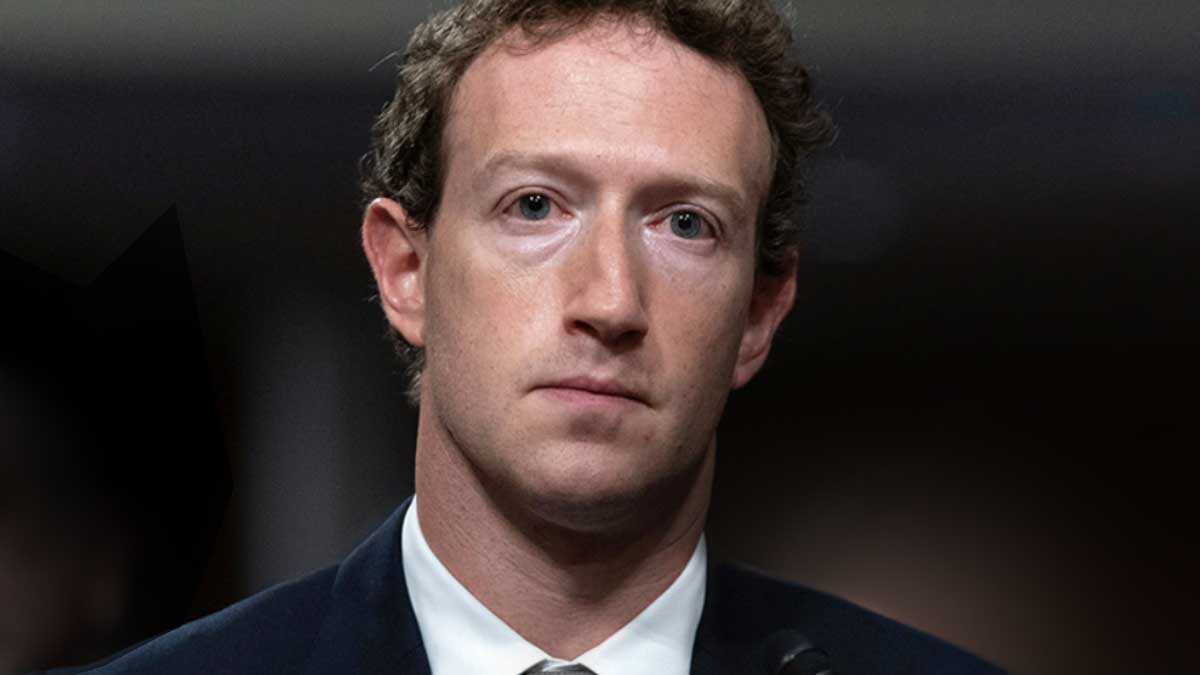- Home
- Billionaires
- Investing Newsletters
- 193CC 1000
- Article Layout 2
- Article Layout 3
- Article Layout 4
- Article Layout 5
- Article Layout 6
- Article Layout 7
- Article Layout 8
- Article Layout 9
- Article Layout 10
- Article Layout 11
- Article Layout 12
- Article Layout 13
- Article Layout 14
- Article Sidebar
- Post Format
- pages
- Archive Layouts
- Post Gallery
- Post Video Background
- Post Review
- Sponsored Post
- Leadership
- Business
- Money
- Small Business
- Innovation
- Shop
Recent Posts
Meta Denies Trump’s Claim About Zuckerberg’s Voting Remark

Former President Donald Trump made headlines on Monday after claiming that Meta CEO Mark Zuckerberg told him he couldn’t vote for a Democrat following a highly publicized assassination attempt. Trump’s remarks were quickly met with a denial from Meta. During an interview with New York Magazine, Trump alleged that Zuckerberg reached out to him after the shooting incident, telling him that supporting a Democrat in the upcoming election was not an option.
According to Trump, Zuckerberg’s phone call came after the assassination attempt on him, and during the conversation, Zuckerberg apparently praised Trump’s resilience. Trump recounted that Zuckerberg said, “I will never vote for the people running against you after watching what you did,” a statement seemingly in reference to Trump’s defiant reaction as he was being escorted offstage by Secret Service. Trump had raised his fist in a show of defiance as blood streamed down his face following the incident.
However, Meta’s response was swift and unequivocal. A spokesperson from the tech giant refuted Trump’s claims, telling New York Magazine that Zuckerberg made no such statement regarding his voting preferences. “As Mark has said publicly, he’s not endorsing anybody in this race and has not communicated to anybody how he intends to vote,” the spokesperson said, distancing Zuckerberg from any political endorsement.
In addition to Zuckerberg, Trump claimed that Amazon CEO Jeff Bezos also called him following the incident. Trump said Bezos complimented his response to the shooting, calling it “the most incredible thing I’ve ever watched.” Trump described his reaction as “natural,” noting that he didn’t feel any fear when the bullet grazed his right ear while speaking at a rally in Butler, Pennsylvania, on July 13. “I didn’t think of fear,” Trump told the magazine, adding that he chose not to dwell on how close he came to disaster. “I was an eighth of an inch from really bad things happening,” he reflected.
Zuckerberg has publicly commented on the incident before, but without endorsing Trump. In an earlier interview with Bloomberg, Zuckerberg described Trump’s response to the shooting as “one of the most badass things I’ve ever seen in my life.” While he acknowledged Trump’s reaction, Zuckerberg made it clear that his admiration did not extend into political support.
Zuckerberg’s relationship with Trump and his political allies has been fraught with tension, primarily over Facebook’s content moderation policies. Republicans have long accused Facebook of favoring Democratic candidates and causes through its handling of certain types of content. These accusations reached new heights during the pandemic when Facebook chose to censor COVID-19 misinformation and also restricted the spread of a controversial New York Post story involving a laptop allegedly belonging to Hunter Biden. These actions fueled multiple Republican-led congressional investigations into Facebook’s content moderation practices.
Despite the criticism from the right, Zuckerberg has made moves in recent months to align more closely with Republicans, even as he maintains that Meta, formerly known as Facebook, intends to stay neutral in the 2024 presidential election. Last month, Zuckerberg wrote a letter to the House Judiciary Committee, claiming that the Biden administration had “repeatedly pressured our teams for months to censor certain COVID-19 content.” He added that Facebook was wrong to bow to the pressure. His letter aligned with a broader Republican narrative that accuses social media companies of suppressing conservative viewpoints, particularly during election cycles.
The Supreme Court ruled this summer that the federal government did not exceed its authority in asking social media platforms to remove posts it deemed to be misinformation. The ruling was seen as a victory for the government’s ability to request content removals from platforms like Facebook without overstepping constitutional boundaries.
Zuckerberg’s company, Meta, previously banned Trump from its platforms following the January 6 Capitol riot, a decision that added further strain to their relationship. Trump responded by suing Meta, seeking to reverse the ban, which was eventually lifted in July. Although Trump has regained access to his accounts, the lawsuit remains unresolved.
Trump’s tensions with Zuckerberg are further explored in his recently published book, “Save America,” which was released on September 3. In the book, Trump accuses Zuckerberg of working against him in the 2020 election and warns of potential legal consequences if he attempts to interfere in the 2024 race. The former president writes that Zuckerberg, alongside his wife Priscilla Chan, donated more than $400 million to nonprofit organizations that helped fund election operations during the pandemic. Conservatives have long alleged, without substantiated evidence, that this money was funneled to help elect Joe Biden in 2020.
In the book, Trump writes, “We are watching him closely, and if he does anything illegal this time, he will spend the rest of his life in prison — as will others who cheat in the 2024 Presidential Election.” Trump’s remarks highlight his continued grievances against Zuckerberg and the broader tech industry, which he views as biased against conservative political figures like himself.
While Zuckerberg has denied any political endorsement and Meta has sought to position itself as neutral, Trump’s allegations add fuel to the ongoing narrative that Silicon Valley is aligned against conservative interests. Whether or not Zuckerberg’s public statements and donations will play a role in the 2024 election remains to be seen, but Trump’s comments suggest that the former president remains deeply suspicious of the tech industry’s influence over political outcomes.
As the 2024 presidential race approaches, it’s likely that Trump’s criticisms of figures like Zuckerberg will continue to surface, especially as the former president positions himself as a candidate who’s been wronged by powerful elites in the tech and media sectors.
Recent Posts
Categories
- 193cc Digital Assets2
- 5G1
- Aerospace & Defense46
- AI37
- Arts3
- Banking & Insurance11
- Big Data3
- Billionaires449
- Boats & Planes1
- Business328
- Careers13
- Cars & Bikes76
- CEO Network1
- CFO Network17
- CHRO Network1
- CIO Network1
- Cloud10
- CMO Network18
- Commercial Real Estate7
- Consultant1
- Consumer Tech180
- CxO1
- Cybersecurity68
- Dining1
- Diversity, Equity & Inclusion4
- Education7
- Energy8
- Enterprise Tech29
- Events11
- Fintech1
- Food & Drink2
- Franchises1
- Freelance1
- Future Of Work2
- Games141
- GIG1
- Healthcare78
- Hollywood & Entertainment186
- Houses1
- Innovation42
- Investing2
- Investing Newsletters4
- Leadership65
- Lifestyle11
- Manufacturing1
- Markets20
- Media193
- Mobile phone1
- Money13
- Personal Finance2
- Policy567
- Real Estate1
- Research6
- Retail1
- Retirement1
- Small Business1
- SportsMoney33
- Style & Beauty1
- Success Income1
- Taxes2
- Travel10
- Uncategorized8
- Vices1
- Watches & Jewelry2
- world's billionaires418
Related Articles
Trump Moves $4B Stake in Truth Social Parent, Stock Drops 6%
Donald Trump recently transferred his 57% stake in Trump Media & Technology...
By 193cc Agency CouncilDecember 20, 2024House Rejects Trump-Backed Funding Bill, Shutdown Looms
The U.S. House of Representatives rejected a new government funding bill on...
By 193cc Agency CouncilDecember 20, 2024Trump Named Time’s Person of the Year for Second Time
On Thursday, Time magazine honored Donald Trump as its “Person of the...
By 193cc Agency CouncilDecember 12, 2024Meta Donates $1 Million to Trump’s Inaugural Fund
Meta, the parent company of Facebook and Instagram, has confirmed a $1...
By 193cc Agency CouncilDecember 12, 2024















Leave a comment